The sewerage system in houses and apartments is periodically clogged. The most common reason for this is fatty deposits formed on the pipes. If they are not removed, then subsequently the drain hole will clog completely, the water will stop leaving and an unpleasant odor will appear. Fat deposits are effectively eliminated by mechanical and improvised means, as well as special preparations. To prevent re-clogging of pipes, a number of preventive measures must be followed.
Why fat accumulates and why is it dangerous
Pipes are clogged not only in the kitchen, but also in the bathroom. This is due to the dumping of fatty food residues into the toilet. The sewer drain stops functioning normally until it is cleaned. The risk of dense blockages increases if the installation of the sewer system was carried out with violations. Most often this happens when the angle of inclination of the pipes is set incorrectly.
Fat deposits not only interfere with the normal operation of the sewer system, but also create a favorable environment in the pipes for the occurrence of mold fungi and dangerous microbes. Over time, a persistent unpleasant smell of hydrogen sulfide and rot appears from the drain hole.
Cleaning methods
It is necessary to get rid of fatty blockages in sewer pipes. There are several proven methods for this.
Improvised means
You can remove fat deposits in the pipes using safe and effective folk remedies.
Soda
Vinegar with baking soda
It is much more effective to clean the blockages with baking soda and vinegar. In addition, citric acid can be added. Alkaline must be poured into the sink or toilet and poured with table vinegar. A chemical reaction will occur that will quench the sodium bicarbonate. At the same time, the released carbon dioxide promotes pushing through blockages in the pipes, and soda with vinegar and citric acid dissolves fat.
Salt
A saline solution must be prepared. To do this, dissolve five tablespoons of salt in a liter of warm water. Pour the prepared solution into the drain hole and leave for three hours. After exposure, rinse the pipes with hot water. The salt will dissolve fatty deposits and eliminate unpleasant odors. This method is suitable for frequent use.
Coca Cola
The drink contains phosphoric acid, which dissolves fat deposits well. To take effect, Coca-Cola must be poured into the toilet or sink and left overnight. In the morning, flush the sewer system with hot water. You can also use a sprite instead of Coca-Cola.
Special drugs
Mister Muscle
Available in the form of a gel or granules. It works within 20 minutes. After use, the pipes should be rinsed with a stream of hot water. The product is very caustic, so you need to work with it with rubber gloves.
Mole
A very popular, effective and inexpensive solution for cleaning the sewer system. Produced in powder and liquid form. Destroys germs and molds. How to use: pour or pour into the pipe and leave to act for several hours. Then rinse the pipes well with hot water.
Tiret Turbo
It is produced in the form of a thick gel. Penetrates into fatty deposits even in stagnant water and dissolves them effectively. Suitable for cleaning not only plastic pipes, but also metal ones. The product also has a disinfectant effect, eliminates unpleasant odors. For exposure, the gel must be poured into the drain hole of the sink and left for five minutes. After that, the pipe should be rinsed with plenty of water.
Bagi Pothan
Strong and effective chemical agent. Removes fat deposits and other impurities in a few minutes. When using the product, be sure to wear rubber gloves and open windows. After exposure, the pipes should be rinsed with a stream of hot water.
Mechanical means
If the blockage is too dense and localized deep in the sewer system, you should use a plumbing cable. The device consists of a long flexible metal wire with a brush at the end and a handle. Sometimes the tip is a stretched, stiff spring.
With the help of rotational movements, the plumbing cable is screwed into the fatty deposits, like a corkscrew. In this case, the blockage is destroyed, and the pipes inside are cleaned. On the working surface of the cable extracted from the sewer system, there are residues of fat and debris that must be removed. After cleaning, the device must be rinsed with hot water and lubricated with machine oil.
Prevention and prevention of the problem
It is possible to prevent the occurrence of fatty deposits in the pipes if a number of preventive measures are taken, namely:
- Periodically turn on the tap only with hot water. Five minutes is enough to wash off the adhering grease from the walls of the sewer pipes.
- Install nets on sinks to retain food debris and debris.
- If possible, sometimes disassemble the pipes and flush them.
- After fatty foods, wash dishes only with warm water and detergents that dissolve fat.
- When installing the sewer system, be sure to take into account the angle of inclination and the diameter of the pipes.
- Do not dispose of food leftovers containing grease down the toilet or sink. It is better to collect them in an unnecessary container and throw them into the trash can.
- Periodically flush the sewer system with a baking soda solution or vinegar. If the blockages are thickened, then chemicals can be used.
Compliance with preventive recommendations helps to prevent the negative consequences associated with clogging of pipes with fat deposits. Failure to comply with the measures entails a number of measures aimed at comprehensive cleaning of the sewer system.

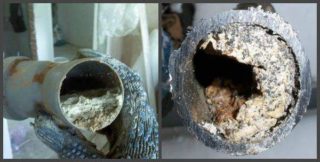
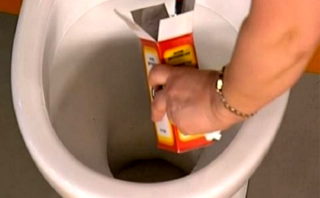
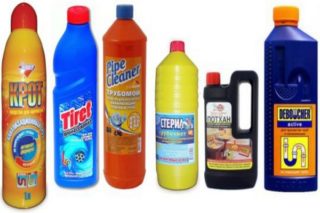
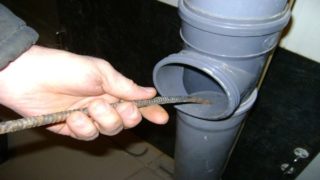
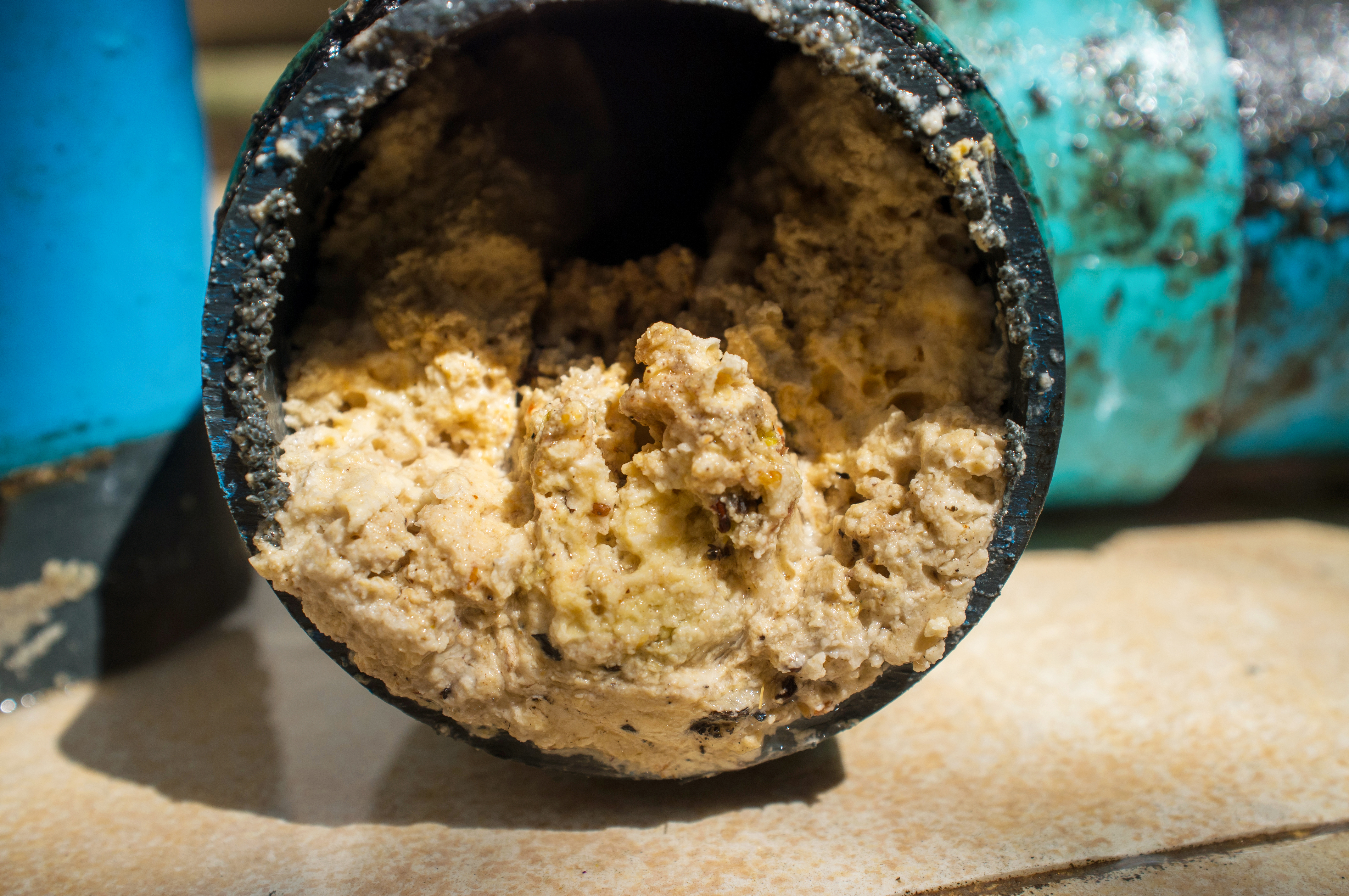
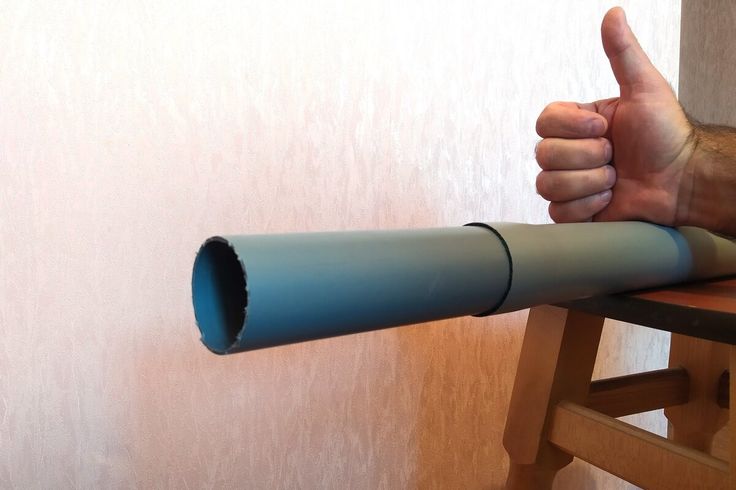
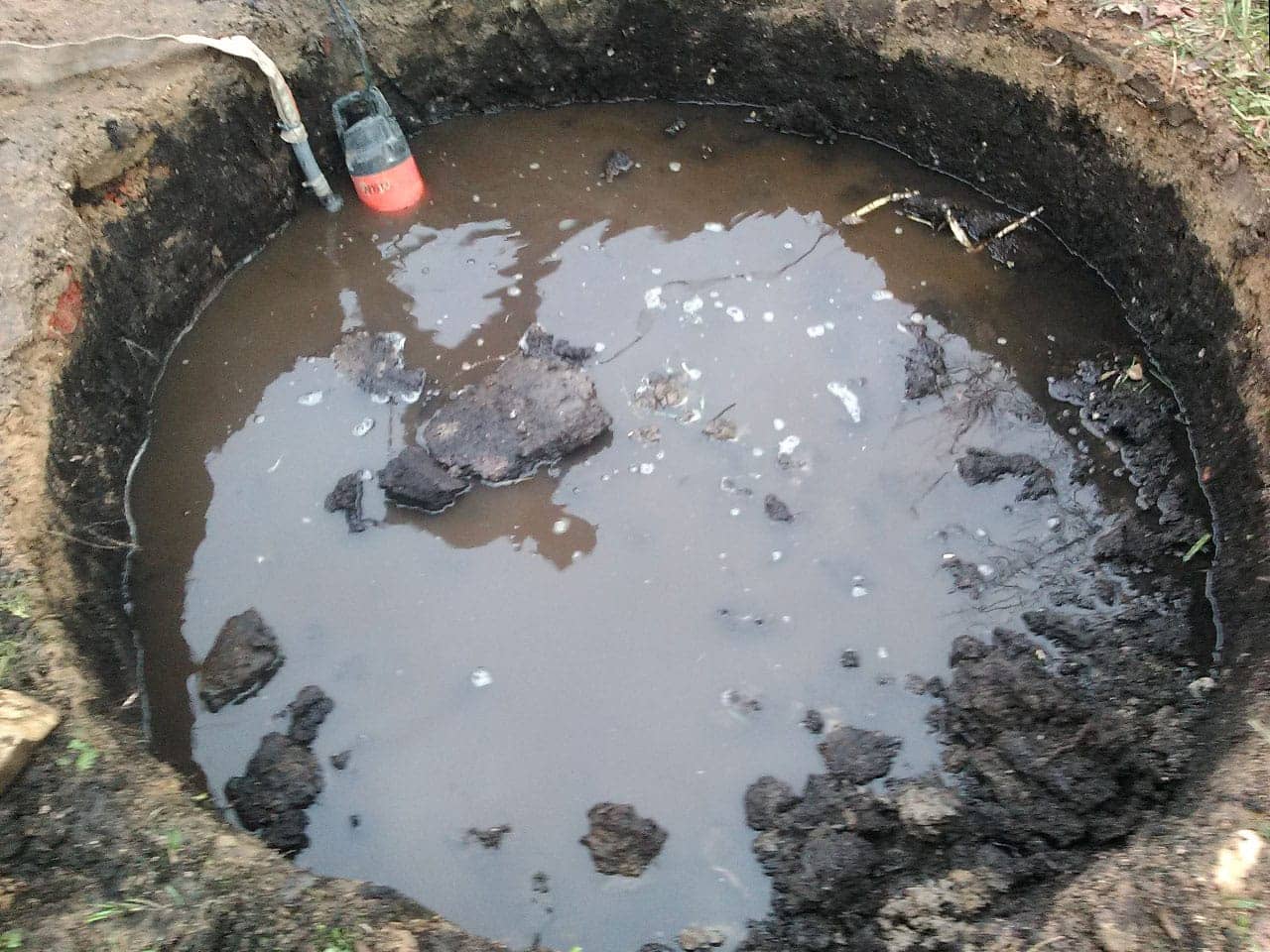
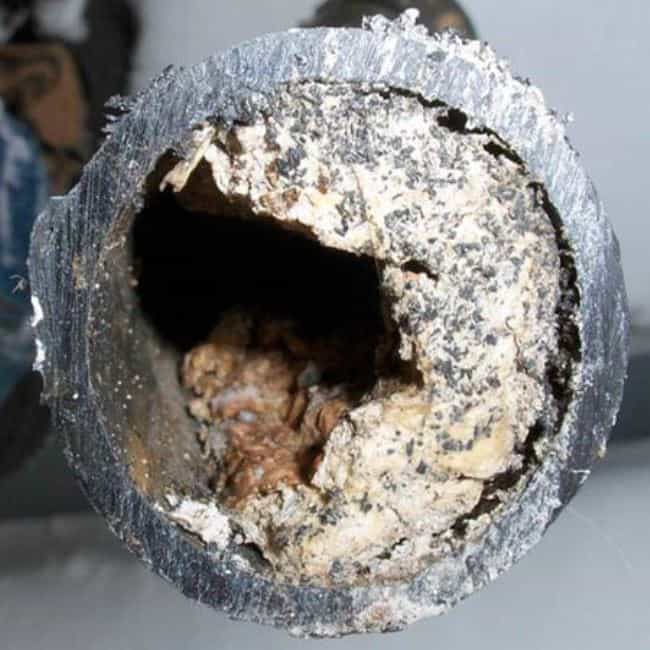
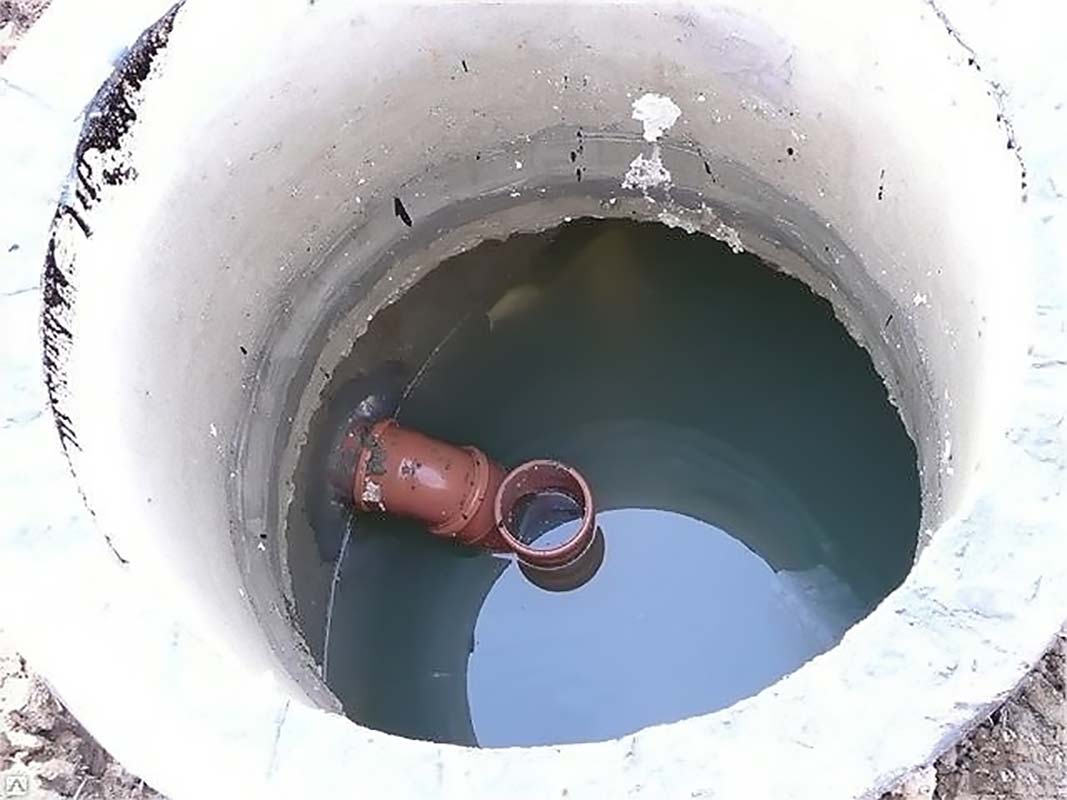
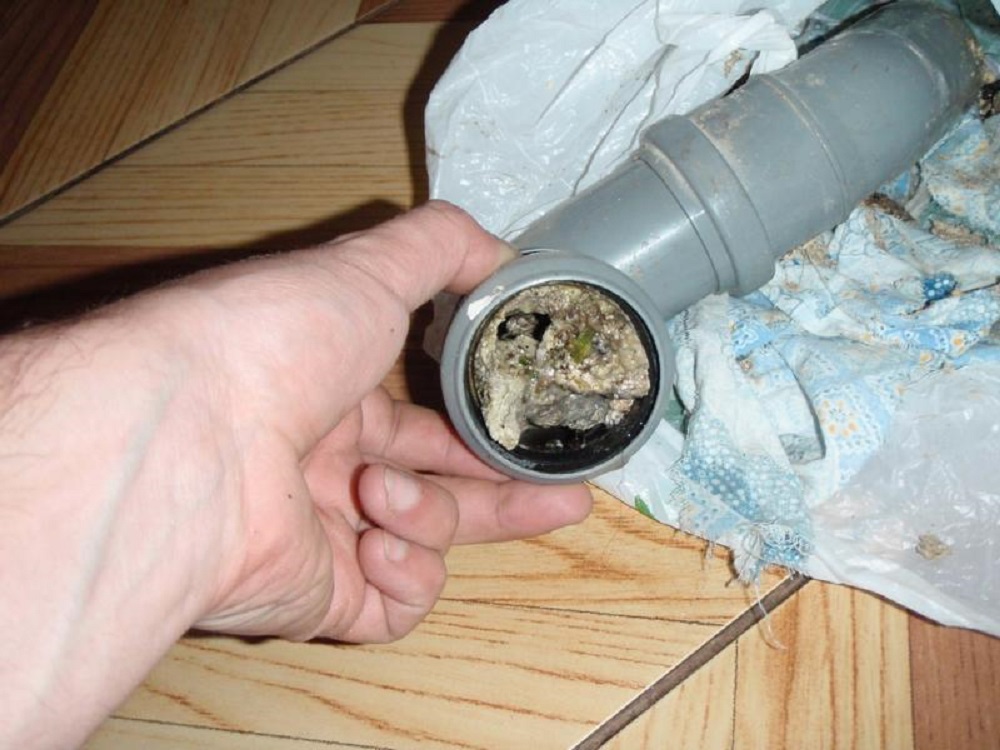
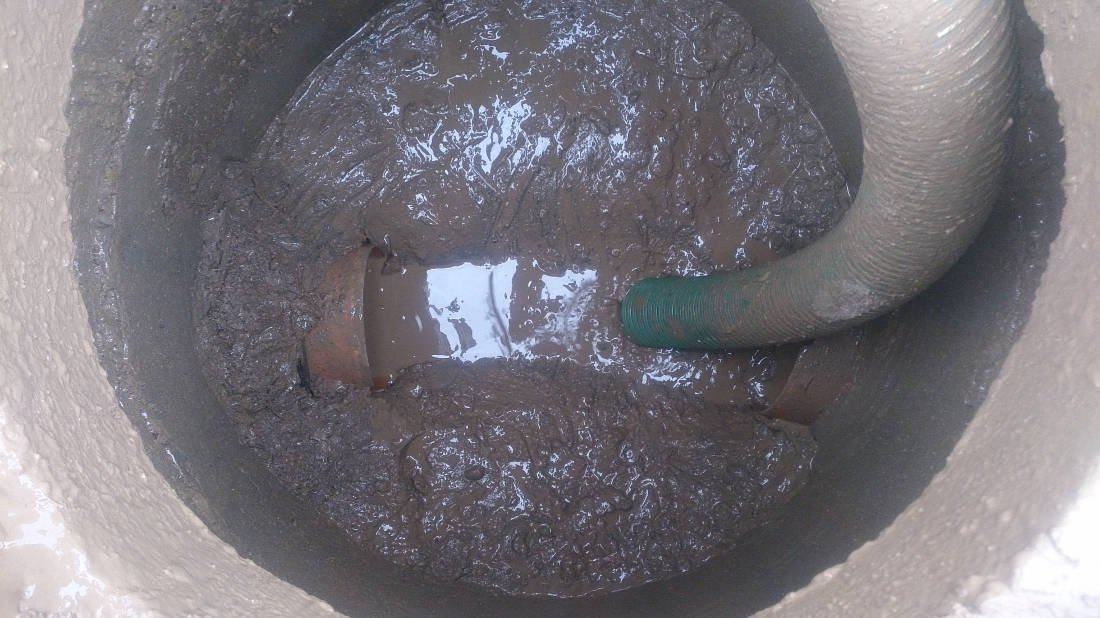
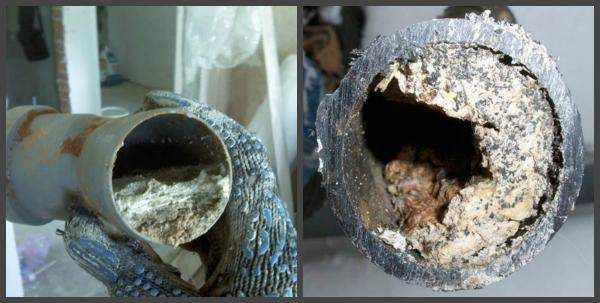
These methods are good for removing grease in drain holes and siphons, but not for pipes, since these "methods" do not stay in the pipe (for dissolving fats) but are drained through pipes .. it is more efficient to spill hot water periodically.
All this is for the household kitchen.
In real life, no gels and powders will burn out a D100mm pipe!
For cleaning, it is practical to use a hydrodynamic rinse and preferably hot water. Well, from the middle I recommend caustic soda "Caustic soda"
Great use for Coca-Cola. I always assumed that it needed to be used somehow.
five-liter kettle of boiling water and no blockages
The whole story is when the bathroom was used once a year. cast iron crumbled, such as rust, well, and completely deprived themselves of the opportunity to wash. The public utilities fooled their heads with the replacement of pipes. We decided simply - a liter of concentrated hydrochloric acid was poured into the pipe. The issue was resolved in 20 minutes.
I will share the best and cheapest way of cleaning pipes. I have a Sewer system, a cast-iron pipe straight from the kitchen to a common riser about two meters long. I pull out the tube from the siphon from the pipe. I insert a plumbing-spring cable into the pipe. If possible, I screw it into all two meters to the riser, the end remaining on the outside should be straight, without a handle. I clamp the cable into the drill. drill rotations can be selected at will. in short, after two minutes of scrolling, the pipe will be like new, and all this chemistry is just money poured into the pipe.
What kind of hot water and boiling water do you talk about pouring boiling water in your opinion - it cools down in the pipe and flows cold it is a siphon to rinse yes - it is easier to disassemble - it is better to invite - MOLE - (machine and wash under pressure)